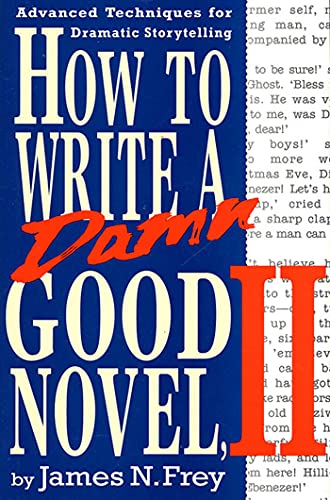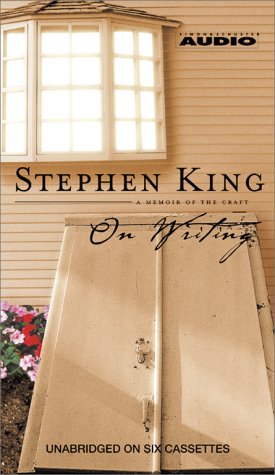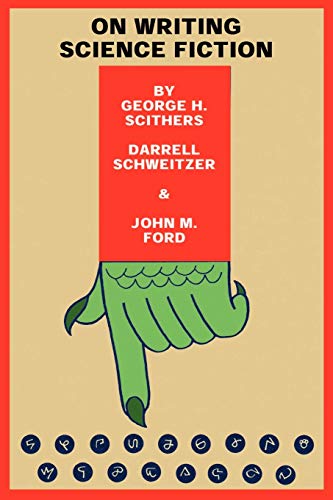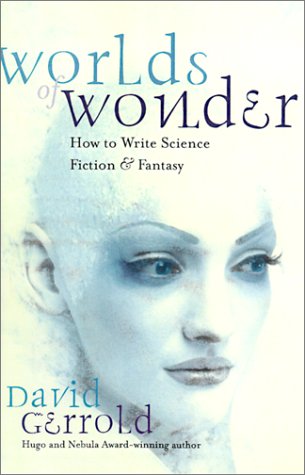Become a Writer (The Absolute Best Books)
Discover the absolute best books to become a writer! Explore must-read titles that inspire, educate, and transform your writing journey. Start mastering your craft today.

Book
Story
by Robert McKee
Robert McKee's screenwriting workshops have earned him an international reputation for inspiring novices, refining works in progress and putting major screenwriting careers back on track. Quincy Jones, Diane Keaton, Gloria Steinem, Julia Roberts, John Cleese and David Bowie are just a few of his celebrity alumni. Writers, producers, development executives and agents all flock to his lecture series, praising it as a mesmerizing and intense learning experience. In Story, McKee expands on the concepts he teaches in his $450 seminars (considered a must by industry insiders), providing readers with the most comprehensive, integrated explanation of the craft of writing for the screen. No one better understands how all the elements of a screenplay fit together, and no one is better qualified to explain the "magic" of story construction and the relationship between structure and character than Robert McKee.

Book
Elements of Fiction Writing - Beginnings, Middles & Ends
by Nancy Kress
Get your stories off to a roaring start. Keep them tight and crisp throughout. Conclude them with a wallop. Is the story or novel you've been carrying around in your head the same one you see on the page? Or does the dialogue suddenly sound flat and predictable? Do the events seem to ramble? Translating a flash of inspiration into a compelling story requires careful crafting. The words you choose, how you describe characters, and the way you orchestrate conflict all make the difference—the difference between a story that is slow to begin, flounders midway, or trails off at the end—and one that holds the interest of readers and editors to the final page. By demonstrating effective solutions for potential problems at each stage of your story, Nancy Kress will help you... hook the editor on the first three paragraphs make—and keep—your story's "implicit promise" build drama and credibility by controlling your prose Dozens of exercises help you strengthen your short story or novel. Plus, you'll sharpen skills and gain new insight into... the price a writer pays for flashbacks six ways characters should "reveal" themselves techniques for writing—and rewriting Let this working resource be your guide to successful stories—from beginning to end.

Book
Elements of Fiction Writing - Characters & Viewpoint
by Orson Scott Card
Vivid and memorable characters aren't born: they have to be made. &break;&break;This book is a set of tools: literary crowbars, chisels, mallets, pliers and tongs. Use them to pry, chip, yank and sift good characters out of the place where they live in your memory, your imagination and your soul. &break;&break;Award-winning author Orson Scott Card explains in depth the techniques of inventing, developing and presenting characters, plus handling viewpoint in novels and short stories. With specific examples, he spells out your narrative options–the choices you'll make in creating fictional people so "real" that readers will feel they know them like members of their own families. &break;&break;You'll learn how to: &break; draw the characters from a variety of sources, including a story's basic idea, real life–even a character's social circumstances&break; make characters show who they are by the things they do and say, and by their individual "style"&break; develop characters readers will love–or love to hate&break; distinguish among major characters, minor characters and walk-ons, and develop each one appropriately&break; choose the most effective viewpoint to reveal the characters and move the storytelling&break; decide how deeply you should explore your characters' thoughts, emotions and attitudes

Book
Dynamic Characters
by Nancy Kress
A truly unforgettable story is defined by its characters. Their motivations, their changes, their actions compel us to read on, anxiously trying to discern what will happen next. In Dynamic Characters, award-winning author and Writer's Digest columnist Nancy Kress explores the fundamental relationship between characterization and plot, illustrating how vibrant, well-constructed characters act as the driving force behind an exceptional story. Kress balances her writing instruction with hands-on checklists to help you build strong characters from the outside in. Blending physical, emotional and mental characterization, you'll learn to create characters that initiate exciting action, react to tense situations, make physical and emotional transformations, and power the plot from beginning to end.

Book
How to Write a Damn Good Novel
by James N. Frey
Covers characterization, plot, theme, conflicts, climax and resolution, point of view, dialogue, revision, and manuscript submission.

Book
How to Write a Damn Good Novel, II
by James N. Frey
More advanced techniques such as how to make characters not just dynamic but memorable, how to heighten the reader's sympathy and identification with characters, how to intensify suspense, how to avoid the fiction writer's seven deadly mistakes, and how to write with passion.


Book
The 38 Most Common Fiction Writing Mistakes
by Jack Bickham
The 38 Most Common Fiction Writing Mistakes When you write fiction, you march onto a minefield. This book gives you a map. Oh, what tricky terrain you're traveling! You must reckon with: Character, Conflict, Point of View, Dialogue, Editors, Editors, and Editors, who--by returning stories they see as problem-plagued--can burst your hopes of publication. Where are the problems? Editors rarely take the time to map them out, so Jack Bickham has. In this book, he spotlights the 38 most common fiction writing land mines--writing mistakes that can turn even dynamite story ideas into slush pile rejects. And he guides you in overcoming them. In to-the-point style, he shows you how to: conquer procrastination--and put ink on paper regularly dump wimpy characters--and build characters ready to act look for trouble--and create conflicts for your characters cut coincidence--and put better-than-life logic into fiction escape the fog--and find and stick to your story's direction free feelings--and fire your fiction with passion and emotion In short, Bickham helps you take a giant step toward publication. Read this book. Strengthen your writing. And start setting off explosions where they belong: on the sales charts.

Book
How to Write Science Fiction & Fantasy
by Orson Scott Card
Learn to write science fiction and fantasy from a master You've always dreamed of writing science fiction and fantasy tales that pull readers into extraordinary new worlds and fantastic conflicts. Best-selling author Orson Scott Card shows you how it's done, distilling years of writing experience and publishing success into concise, no-nonsense advice. You'll learn how to: • utilize story elements that define the science fiction and fantasy genres • build, populate, and dramatize a credible, inviting world your readers will want to explore • develop the "rules" of time, space and magic that affect your world and its inhabitants • construct a compelling story by developing ideas, characters, and events that keep readers turning pages • find the markets for speculative fiction, reach them, and get published • submit queries, write cover letters, find an agent, and live the life of a writer The boundaries of your imagination are infinite. Explore them with Orson Scott Card and create fiction that casts a spell over agents, publishers, and readers from every world.


